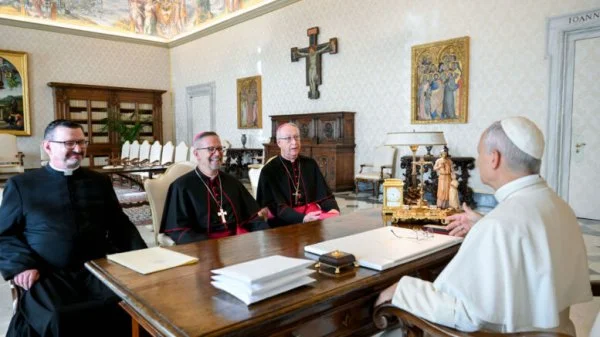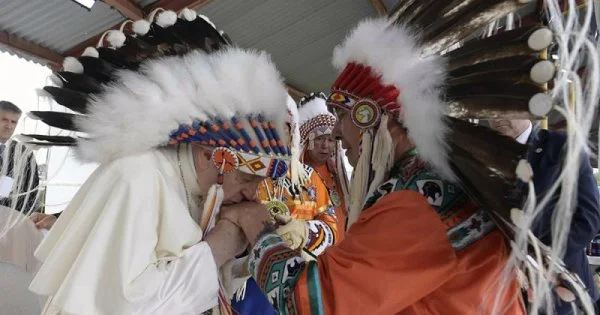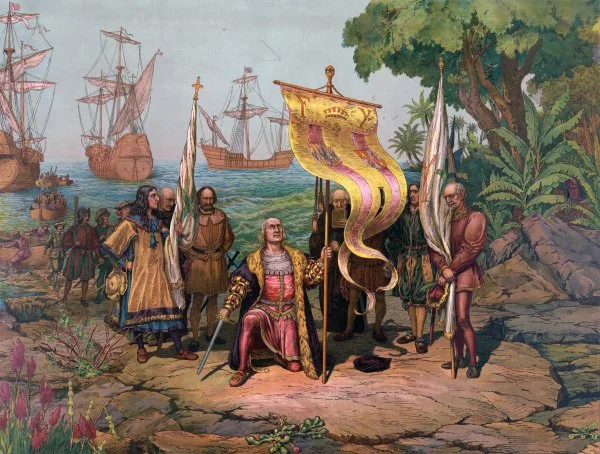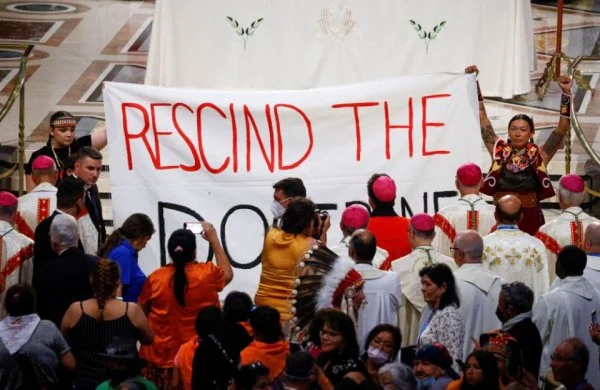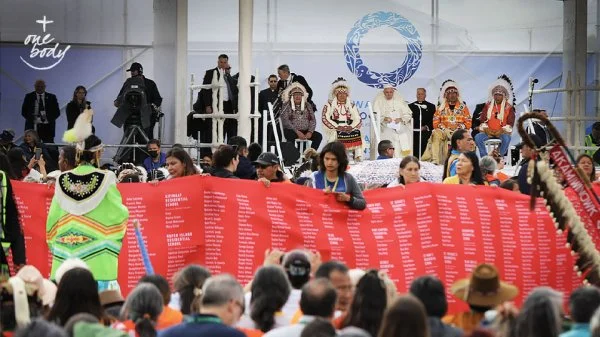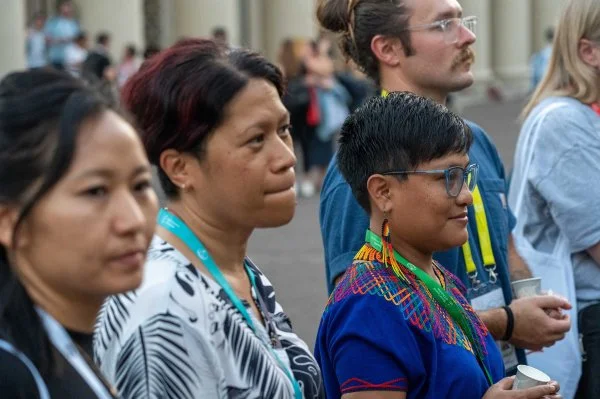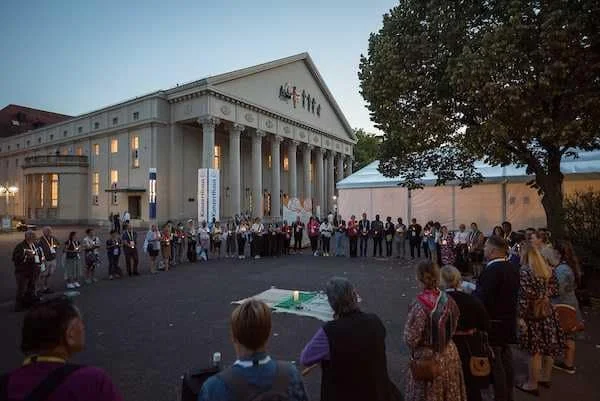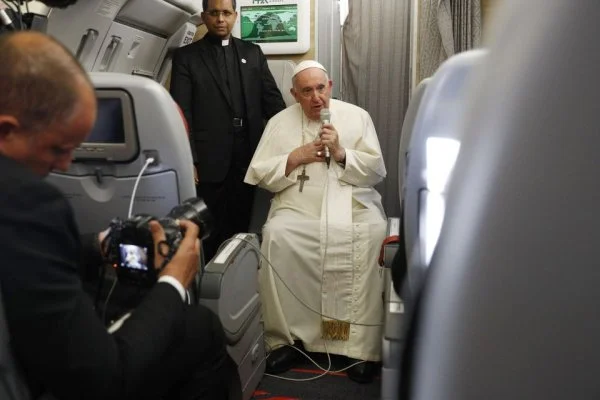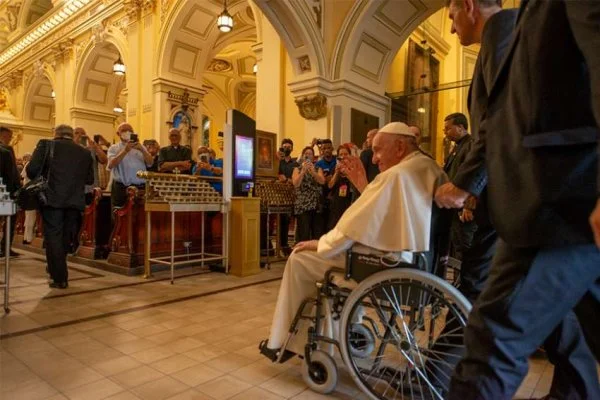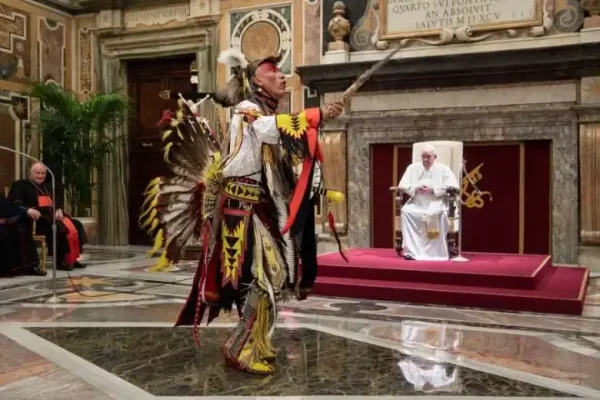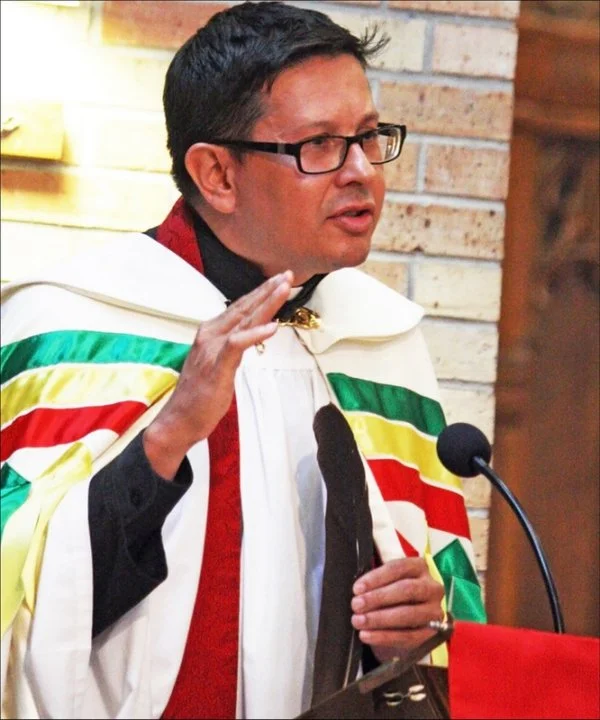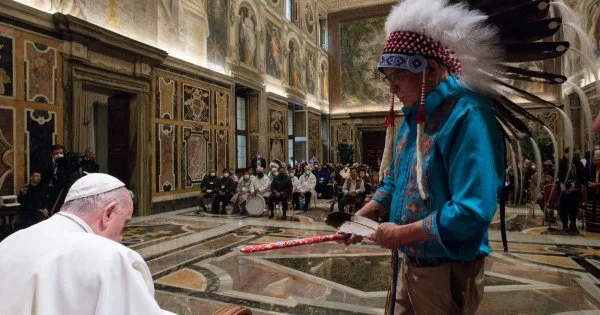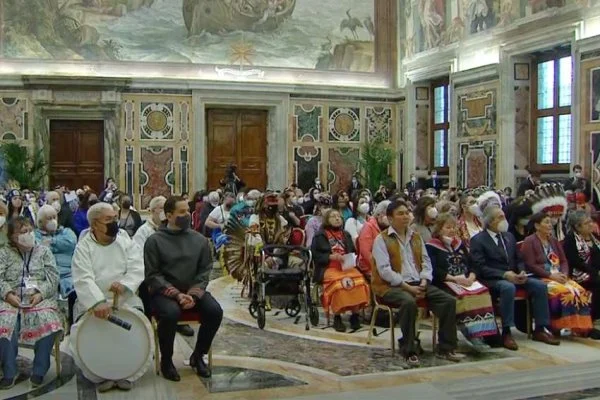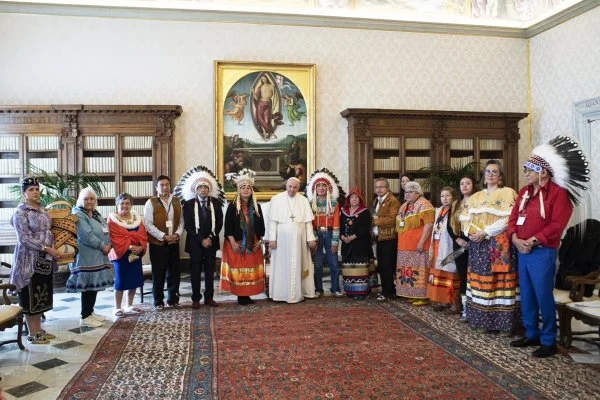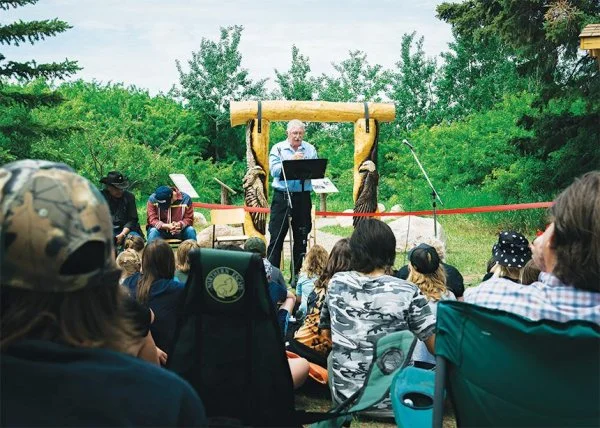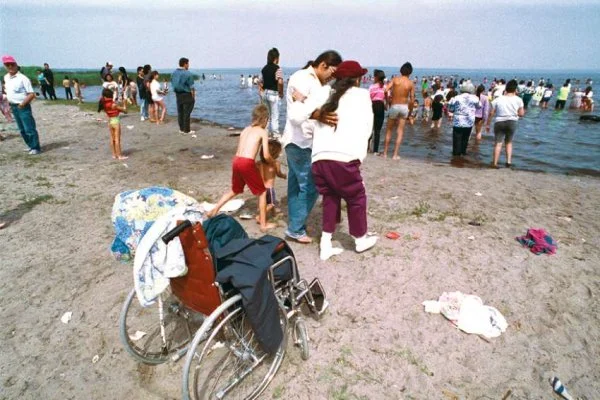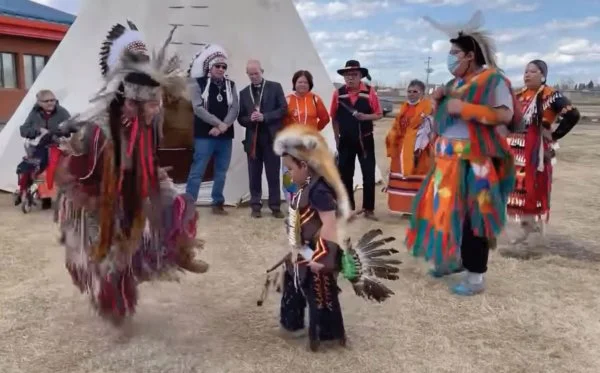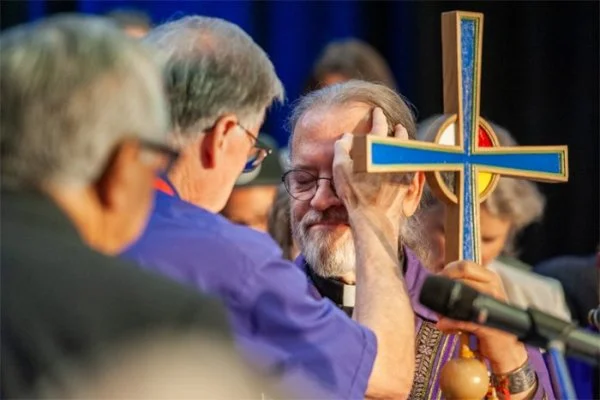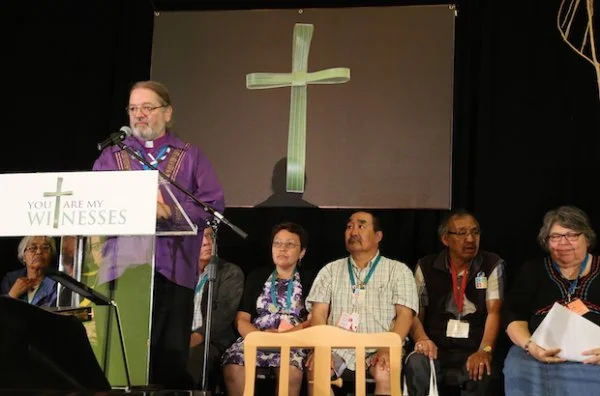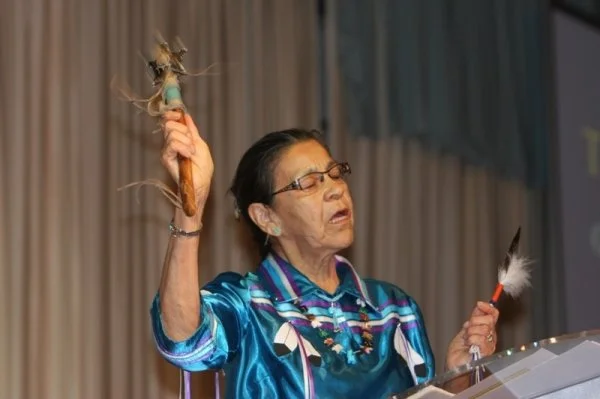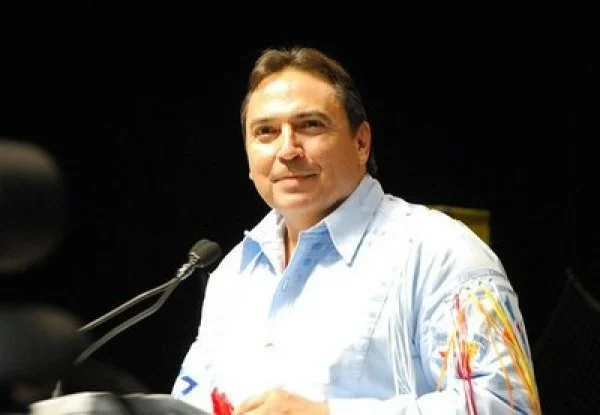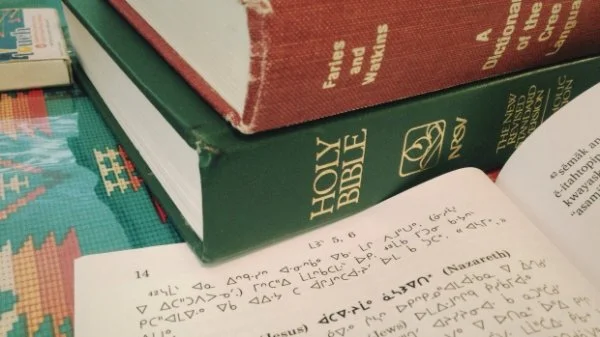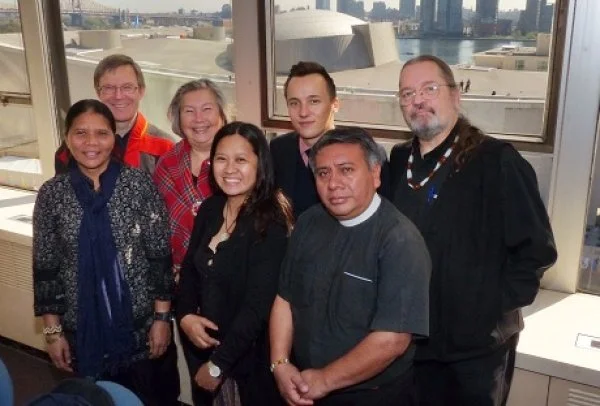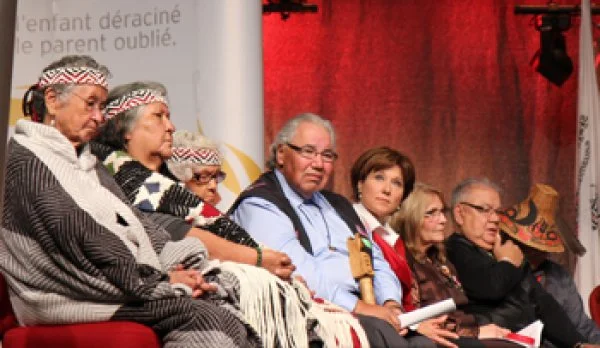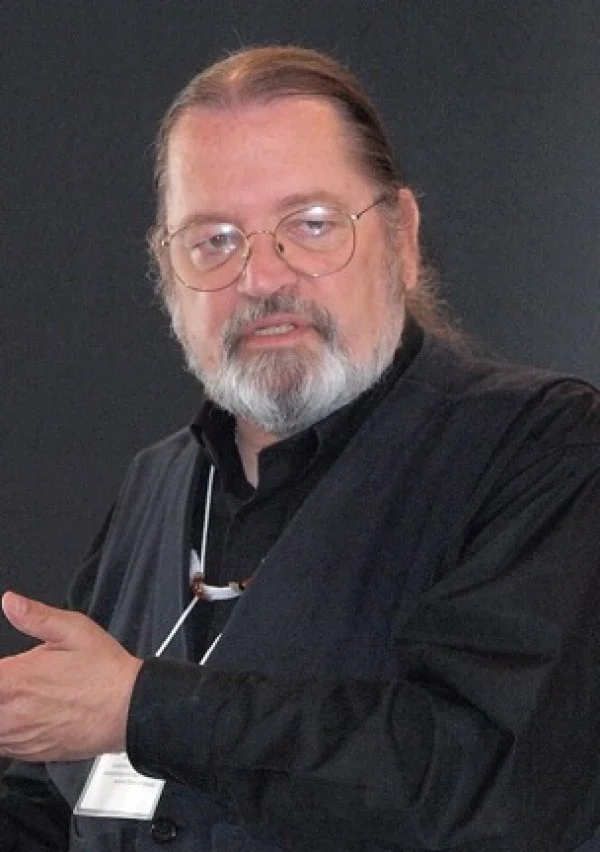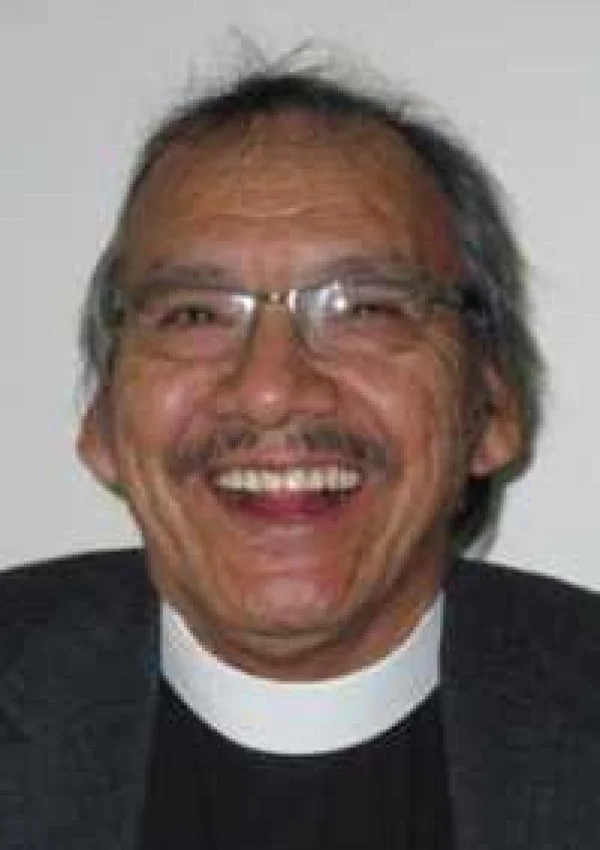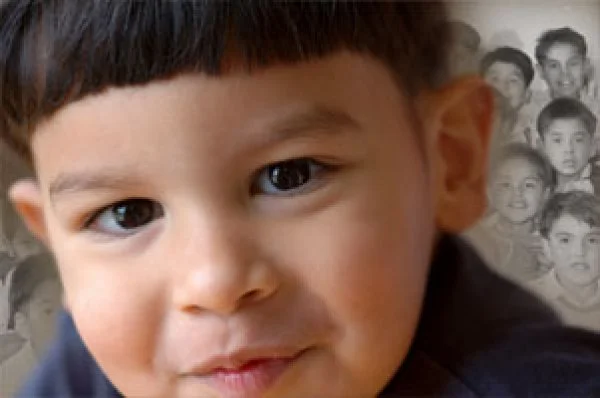- Français
- |
- Booklist
- |
- Week of Prayer
- |
- Links
- Areopagus - a forum for dialogue
- Academic journals
- Acronyms
- Bible tools
- Bibliographies
- Booksellers and publishers
- Churches
- Canadian church headquarters
- Directory of Saskatchewan churches
- Retreat centres
- Saskatchewan church and non-profit agencies
- Ecumenism.net Denominational links
- Anabaptist & Mennonite
- Anglican
- Baptist
- Evangelical
- Independent episcopal
- Lutheran
- Methodist, Wesleyan, and Holiness
- Miscellaneous
- Mormon
- Orthodox (Eastern & Oriental)
- Para-church ministries
- Pentecostal / charismatic
- Presbyterian & Reformed
- Quaker (Society of Friends)
- Roman & Eastern Catholic
- United and uniting
- Documents of Ecumenical Interest
- Ecumenical agencies
- Ecumenical Booklist
- Ecumenical Dialogues
- Glossary
- Human rights
- Inter-religious links
- Justice & peace
- Lectionaries
- Religious news services
- Resource pages
- Search Ecumenism.Net
- |
- Documents
- Ancient & Medieval texts
- Ecumenical Dialogues
- Interreligious
- Anabaptist & Mennonite
- Anglican
- Evangelical
- Lutheran
- Orthodox
- Reformed & Presbyterian
- Roman & Eastern Catholic
- United & Uniting
- Miscellaneous churches
- Canadian Council of Churches (CCC)
- Conference of European Churches (CEC)
- Interchurch Families International Network (IFIN)
- National Council of Churches in Australia (NCCA)
- Lausanne Committee for World Evangelism (LCWE)
- World Council of Churches (WCC)
- Other ecumenical documents
Church traditions
Documents from ecumenical agencies
- |
- Dialogues
- Adventist-Reformed
- African Instituted Churches-Reformed
- Anglican-Lutheran
- Anglican-Orthodox
- Anglican-Reformed
- Anglican-Roman Catholic
- Anglican-United/Uniting
- Baptist-Reformed
- Disciples of Christ-Reformed
- Disciples of Christ-Roman Catholic
- Evangelical-Roman Catholic
- Lutheran-Mennonite
- Lutheran-Mennonite-Roman Catholic
- Lutheran-Reformed
- Lutheran-Roman Catholic
- Mennonite-Reformed
- Mennonite-Roman Catholic
- Methodist-Reformed
- Methodist-Roman Catholic
- Oriental Orthodox-Reformed
- Orthodox-Reformed
- Orthodox-Roman Catholic
- Pentecostal-Reformed
- Prague Consultations
- REC-WARC Consultations
- Roman Catholic-Lutheran-Reformed
- Roman Catholic-Reformed
- Roman Catholic-United Church of Canada
- |
- Quick links
- Canadian Centre for Ecumenism
- Canadian Council of Churches
- Ecumenical Shared Ministries
- Ecumenism in Canada
- Interchurch Families International Network
- International Anglican-Roman Catholic Commission for Unity and Mission
- Kairos: Canadian Ecumenical Justice Initiatives
- North American Academy of Ecumenists
- Prairie Centre for Ecumenism
- Réseau œcuménique justice et paix
- Week of Prayer for Christian Unity
- Women's Interchurch Council of Canada
- World Council of Churches
- |
- Archives
- |
- About us
Archive for tag: Indigenous peoples
Archive pour tag : Indigenous peoples
The return of 62 Indigenous artifacts to the Canadian bishops, held at the Vatican for more than 100 years, is “a milestone in the long journey of reconciliation and healing,” said Archbishop Richard Smith of Vancouver.
In an interview with America Magazine, the archbishop underlined that the repatriation occurred during the Jubilee of Hope.
… Read more » … lire la suite »

 Permanent link: ecumenism.net/?p=14696
Permanent link: ecumenism.net/?p=14696
Categories: News • In this article: CCCB, Indigenous peoples, Pope Leo XIV, Reconciliation

 Lien permanente : ecumenism.net/?p=14696
Lien permanente : ecumenism.net/?p=14696
Catégorie : News • Dans cet article : CCCB, Indigenous peoples, Pope Leo XIV, Reconciliation
Pope Leo XIV fulfilled a promise made by the late Pope Francis to return to Canada’s Indigenous communities artifacts — including an Inuit kayak, masks, moccasins, and etchings — that have been held by the Vatican for more than 100 years.
The pope gave 62 artifacts to the leaders of the Canadian bishops’ conference Nov. 15, the Vatican and the bishops’ conference said in a joint statement.
The bishops “will proceed, as soon as possible, to transfer these artifacts to the National Indigenous Organizations,” which will ensure they are “reunited with their communities of origin,” said a separate statement from the Canadian Conference of Catholic Bishops.
… Read more » … lire la suite »

 Permanent link: ecumenism.net/?p=14686
Permanent link: ecumenism.net/?p=14686
Categories: CNS • In this article: Canada, Indigenous peoples, Pope Francis, Pope Leo XIV, Reconciliation

 Lien permanente : ecumenism.net/?p=14686
Lien permanente : ecumenism.net/?p=14686
Catégorie : CNS • Dans cet article : Canada, Indigenous peoples, Pope Francis, Pope Leo XIV, Reconciliation
On Sunday, August 6, we in the Anglican Church of Canada will pause to acknowledge the 30th anniversary of the Apology offered by Archbishop and Primate Michael Geoffrey Peers. This moment is more pronounced, in light of his death on July 27.
I humbly ask that the moments we take on Sunday and throughout the week should also reflect a thanksgiving for the ministry of Archbishop Peers. He prayerfully stepped into that historic moment and stood before the people, apologizing for a wrong done and for trauma committed by our church. The willingness of the church to participate in the residential school experience has resulted in a legacy of trauma that’s been handed down and is lived daily by Indigenous survivors and their families.
… Read more » … lire la suite »

 Permanent link: ecumenism.net/?p=13920
Permanent link: ecumenism.net/?p=13920
Categories: News, Opinion • In this article: Anglican Church of Canada, apologies, Chris Harper, Indigenous peoples, Reconciliation

 Lien permanente : ecumenism.net/?p=13920
Lien permanente : ecumenism.net/?p=13920
Catégorie : News, Opinion • Dans cet article : Anglican Church of Canada, apologies, Chris Harper, Indigenous peoples, Reconciliation
Racism has been identified as one of the most significant challenges facing the North American region in the United States and Canada, a World Council of Churches (WCC) meeting has heard. Members of the North American region of the WCC’s Central Committee, its highest governing body between Assemblies, met during its 21-27 June meeting in Geneva.
“North America or Turtle Island, which is the Indigenous name for North America, is one of three continents that make up ‘The New World.’ The continent was new to 15th-century European explorers but old to the Indigenous peoples already living there,” said Rev. Dr Angelique Walker-Smith, WCC president from North America.
… Read more » … lire la suite »

 Permanent link: ecumenism.net/?p=13909
Permanent link: ecumenism.net/?p=13909
Categories: WCC News • In this article: Indigenous peoples, racism, WCC Central Committee

 Lien permanente : ecumenism.net/?p=13909
Lien permanente : ecumenism.net/?p=13909
Catégorie : WCC News • Dans cet article : Indigenous peoples, racism, WCC Central Committee
Pope Francis is getting personally involved in making sure sacred items and cultural artifacts held in the Vatican Museums are returned to Canadian Indigenous communities.
“The restitution of Indigenous things of Canada is underway, at least we agreed to do so,” Pope Francis told reporters during his news conference on the plane trip back to Rome April 30 following his papal visit to Hungary. “I will now ask how that’s going.”
… Read more » … lire la suite »

 Permanent link: ecumenism.net/?p=13652
Permanent link: ecumenism.net/?p=13652
Categories: Catholic Register • In this article: Indigenous peoples, Pope Francis, Reconciliation

 Lien permanente : ecumenism.net/?p=13652
Lien permanente : ecumenism.net/?p=13652
Catégorie : Catholic Register • Dans cet article : Indigenous peoples, Pope Francis, Reconciliation
After the Vatican’s recent repudiation of the Doctrine of Discovery, I spent two hours speaking with three Indigenous people about the 500-year-old church doctrine that is as much the bedrock of Canada as the Canadian Shield.
I asked about its relevance, the potential of its undoing, and a question I had never asked before. Those discussions left me feeling both low-level dread and an almost irresistible sense of the possibility of grace. First, what is the Doctrine of Discovery?
“The story of the Doctrine is the story of how you can obtain other people’s land by magic,” retired judge Harry LaForme told the Globe and Mail in 2022. “You just sprinkle these papal bulls and you get it.”
… Read more » … lire la suite »

 Permanent link: ecumenism.net/?p=13570
Permanent link: ecumenism.net/?p=13570
Categories: News, Opinion • In this article: Doctrine of Discovery, Indigenous peoples, Mennonite, Reconciliation

 Lien permanente : ecumenism.net/?p=13570
Lien permanente : ecumenism.net/?p=13570
Catégorie : News, Opinion • Dans cet article : Doctrine of Discovery, Indigenous peoples, Mennonite, Reconciliation
The Catholic Church formally “repudiates those concepts that fail to recognize the inherent human rights of Indigenous peoples, including what has become known as the legal and political ‘doctrine of discovery,'” a Vatican statement said.
Issued March 30 by the dicasteries for Culture and Education and for Promoting Integral Human Development, the statement said papal texts that seemed to support the idea that Christian colonizers could claim the land of non-Christian Indigenous people “have never been considered expressions of the Catholic faith.”
… Read more » … lire la suite »

 Permanent link: ecumenism.net/?p=13478
Permanent link: ecumenism.net/?p=13478
Categories: CNS • In this article: Dicastery for Promoting Integral Human Development, Doctrine of Discovery, Indigenous peoples, Vatican

 Lien permanente : ecumenism.net/?p=13478
Lien permanente : ecumenism.net/?p=13478
Catégorie : CNS • Dans cet article : Dicastery for Promoting Integral Human Development, Doctrine of Discovery, Indigenous peoples, Vatican
Four letters and 26 promises from Canada’s bishops to Indigenous Canadians set an agenda for reconciliation that bishops like Calgary’s Bishop Bill McGrattan intend to act on before February turns into March.
McGrattan has scheduled meetings with members of the Indigenous Reconciliation Fund committee in his diocese. The committee — there are similar committees in dioceses across Canada — makes recommendations for local Calgary projects that could be funded by the national $30 million reconciliation fund Canada’s bishops have set up. McGrattan has forwarded the letters to Inuit, First Nations and Metis committee members and hopes for their feedback.
… Read more » … lire la suite »

 Permanent link: ecumenism.net/?p=13332
Permanent link: ecumenism.net/?p=13332
Categories: Catholic Register • In this article: bishops, Canada, Catholic, CCCB, Indigenous peoples, Reconciliation

 Lien permanente : ecumenism.net/?p=13332
Lien permanente : ecumenism.net/?p=13332
Catégorie : Catholic Register • Dans cet article : bishops, Canada, Catholic, CCCB, Indigenous peoples, Reconciliation
On two occasions this past year, Pope Francis has expressed his deep sorrow for the pain and trauma suffered by former students of residential schools and their descendants. At the end of March, he met with delegations of First Nations, Métis and Inuit Peoples in Rome where he stated: “Listening to your voices, I was able to enter into and be deeply grieved by the stories of the suffering, hardship, discrimination and various forms of abuse that some of you experienced, particularly in the residential schools. … I ask for God’s forgiveness and I want to say to you with all my heart: I am very sorry. And I join my brothers, the Canadian bishops, in asking your pardon.”
Following this initial meeting, he travelled to Canada in July where he re-iterated his heartfelt apology for Catholic involvement in residential schools and again joined with the Canadian Bishops in asking pardon. He stated: “Today I am here, in this land that, along with its ancient memories, preserves the scars of still open wounds. I am here because the first step of my penitential pilgrimage among you is that of again asking forgiveness, of telling you once more that I am deeply sorry…. I ask forgiveness, in particular, for the ways in which many members of the Church and of religious communities cooperated, not least through their indifference, in projects of cultural destruction and forced assimilation promoted by the governments of that time, which culminated in the system of residential schools.”
… Read more » … lire la suite »

 Permanent link: ecumenism.net/?p=13631
Permanent link: ecumenism.net/?p=13631
Categories: One Body, Opinion • In this article: apologies, Indigenous peoples, Pope Francis, Residential Schools

 Lien permanente : ecumenism.net/?p=13631
Lien permanente : ecumenism.net/?p=13631
Catégorie : One Body, Opinion • Dans cet article : apologies, Indigenous peoples, Pope Francis, Residential Schools
The World Council of Churches Central Committee approved the release of two statements proposed at the recent Karlsruhe Assembly that had not been completed during the Assembly. In the introduction to the first statement, “Statement on Confronting Racism and Xenophobia, Overcoming Discrimination, Ensuring Belonging”, the WCC stated simply that, “(t)he World Council of Churches, at its 11th assembly, in Karlsruhe, Germany, abhors the perpetuation of all forms of racism, xenophobia and related discriminations against humanity and the pervasive suffering it causes.”
… Read more » … lire la suite »

 Permanent link: ecumenism.net/?p=12538
Permanent link: ecumenism.net/?p=12538
Categories: News • In this article: Indigenous peoples, racism, WCC, WCC Assembly

 Lien permanente : ecumenism.net/?p=12538
Lien permanente : ecumenism.net/?p=12538
Catégorie : News • Dans cet article : Indigenous peoples, racism, WCC, WCC Assembly
A date for a new papal statement on the Doctrine of Discovery, promised by Pope Francis on his way home from Canada to Rome, has not been announced. But whenever it happens it will address core concerns of Indigenous people in Canada and in many other parts of the world.
The Canadian Conference of Catholic Bishops is working with Vatican officials in Rome on the wording for a new statement rejecting an entire tradition of legal reasoning, said CCCB spokesperson Jonathan Lesarge.
… Read more » … lire la suite »

 Permanent link: ecumenism.net/?p=12518
Permanent link: ecumenism.net/?p=12518
Categories: Catholic Register • In this article: CCCB, Doctrine of Discovery, Indigenous peoples, terra nullius, Vatican

 Lien permanente : ecumenism.net/?p=12518
Lien permanente : ecumenism.net/?p=12518
Catégorie : Catholic Register • Dans cet article : CCCB, Doctrine of Discovery, Indigenous peoples, terra nullius, Vatican
The ITA plane with Pope Francis, his entourage and accredited journalists on board took off at 9:16 a.m. on Sunday, July 24, 2022, from Fiumicino Airport, heading for Edmonton Airport, where it landed around 11:20 a.m. Thus began Pope Francis’ trip to Canada, the second largest country in the world, about 10 million square kilometers in size but inhabited by only 38 million people.
… Read more » … lire la suite »

 Permanent link: ecumenism.net/?p=12458
Permanent link: ecumenism.net/?p=12458
Categories: News • In this article: apologies, Indigenous peoples, papal visit, Pope Francis, Reconciliation

 Lien permanente : ecumenism.net/?p=12458
Lien permanente : ecumenism.net/?p=12458
Catégorie : News • Dans cet article : apologies, Indigenous peoples, papal visit, Pope Francis, Reconciliation
Message from the WCC Indigenous Peoples Pre-Assembly 28-30 August 2022 We were welcomed to this land in song, scripture, and ceremony by the Sami people and members of the Ecumenical Indigenous Peoples Network. We acknowledge the Sami of Norway, Sweden, Finland and parts of Russia and the Inuit of Greenland as Indigenous peoples of Europe.
… Read more » … lire la suite »

 Permanent link: ecumenism.net/?p=12438
Permanent link: ecumenism.net/?p=12438
Categories: Conferences, News • In this article: Indigenous peoples, WCC, WCC Assembly

 Lien permanente : ecumenism.net/?p=12438
Lien permanente : ecumenism.net/?p=12438
Catégorie : Conferences, News • Dans cet article : Indigenous peoples, WCC, WCC Assembly
Pope Francis on July 29 said that the Catholic Church’s treatment of Indigenous peoples in Canada amounted to a cultural “genocide” and warned against a colonialist mindset that continues to view Native peoples and customs as “inferior.”
Francis said that “taking away the children, changing the culture and mentality” and erasing “an entire culture” was effectively a “genocide.”
The pope’s remarks came during an inflight press conference en route back to Rome after his July 24-29 trip to Canada, where he apologized on multiple occasions for the abuse that Indigenous children suffered at Catholic-run residential schools, as well as for the church’s adoption of policies that stripped away Indigenous culture.
… Read more » … lire la suite »

 Permanent link: ecumenism.net/?p=12320
Permanent link: ecumenism.net/?p=12320
Categories: NCR • In this article: Indigenous peoples, papal visit, Pope Francis, Reconciliation

 Lien permanente : ecumenism.net/?p=12320
Lien permanente : ecumenism.net/?p=12320
Catégorie : NCR • Dans cet article : Indigenous peoples, papal visit, Pope Francis, Reconciliation
In a brief protest at a papal Mass in Canada, Indigenous women unfurled a banner that said, “Rescind the Doctrine.”
The protest July 28 was a momentary but graphic reminder of how, when representatives of Canada’s First Nations, Métis and Inuit communities met Pope Francis at the Vatican in March and April, they asked him specifically for a formal repudiation of the so-called “Doctrine of Discovery.”
The phrase describes a collection of papal teachings, beginning in the 14th century, that blessed the efforts of explorers to colonize and claim the lands of any people who were not Christian, placing both the land and the people under the sovereignty of European Christian rulers.
The loss of the land, language, culture and spirituality of the Indigenous peoples of Canada and the foundation of the residential school system all can be traced to the doctrine, Indigenous leaders told reporters after their meetings with the pope.
… Read more » … lire la suite »

 Permanent link: ecumenism.net/?p=12324
Permanent link: ecumenism.net/?p=12324
Categories: CNS • In this article: Doctrine of Discovery, Indigenous peoples, papal visit, Pope Francis

 Lien permanente : ecumenism.net/?p=12324
Lien permanente : ecumenism.net/?p=12324
Catégorie : CNS • Dans cet article : Doctrine of Discovery, Indigenous peoples, papal visit, Pope Francis
Meeting Indigenous survivors of residential schools in Canada, Pope Francis entrusted them and the journey of truth, healing and reconciliation to three women: St. Anne, Mary and St. Kateri Tekakwitha.
“These women can help us to come together and start to weave anew a reconciliation that can uphold the rights of the most vulnerable in our midst and look at history without resentment or forgetfulness,” the pope said July 29, his last morning in Canada.
Before heading to the airport for a three-hour flight to Iqaluit, Nunavut, in the Canadian Arctic, Pope Francis met with two dozen survivors of residential schools from across Eastern Canada. Organizers said they included people from the Algonquin, Mohawk, Cree, Innu and Mi’kmaq nations.
… Read more » … lire la suite »

 Permanent link: ecumenism.net/?p=12315
Permanent link: ecumenism.net/?p=12315
Categories: CNS • In this article: Indigenous peoples, papal visit, Pope Francis, Reconciliation

 Lien permanente : ecumenism.net/?p=12315
Lien permanente : ecumenism.net/?p=12315
Catégorie : CNS • Dans cet article : Indigenous peoples, papal visit, Pope Francis, Reconciliation
On the final day of Pope Francis’ pilgrimage of penance, one of healing and reconciliation, he says it is he who has been “enriched” by the experience.
“Now that I am nearing the end of this intense pilgrimage, I want to tell you that although I came with these desires (for healing and reconciliation), I am now returning home greatly enriched,” the Pope told a gathering of some two dozen residential school survivors at the residence of Cardinal Gerald Lacroix in Quebec City this morning. Reporters were present for the beginning of the meeting but were asked to leave following the formal speeches to allow the Pope to speak in private with the survivors.
“I bear in my heart the incomparable treasure of all those individuals and peoples who have left a mark on me; the faces, smiles and messages that remain with me; the unforgettable stories and natural beauties; the sounds, colours and emotions that touched me deeply.”
… Read more » … lire la suite »

 Permanent link: ecumenism.net/?p=12313
Permanent link: ecumenism.net/?p=12313
Categories: Catholic Register • In this article: Indigenous peoples, papal visit, Pope Francis

 Lien permanente : ecumenism.net/?p=12313
Lien permanente : ecumenism.net/?p=12313
Catégorie : Catholic Register • Dans cet article : Indigenous peoples, papal visit, Pope Francis
If Canadian Catholics were looking for a roadmap to reconciliation, Pope Francis laid it out for them at a vespers prayer service in Quebec City’s exquisite Notre Dame Basilica Cathedral on a rainy Thursday evening.
As is typical of Pope Francis’ preaching, he laid it out in three parts — three challenges to the Church in Canada. Canada’s Catholics must find a way to make Jesus known, become credible witnesses to the Gospel and seek out genuine fraternity with others. None of those three priorities for a reconciling Church has anything to do with a negative, judgmental, condemnatory, defensive, narrow, navel-gazing version of Christian life, he said.
… Read more » … lire la suite »

 Permanent link: ecumenism.net/?p=12317
Permanent link: ecumenism.net/?p=12317
Categories: Catholic Register • In this article: Indigenous peoples, papal visit, Pope Francis, Reconciliation

 Lien permanente : ecumenism.net/?p=12317
Lien permanente : ecumenism.net/?p=12317
Catégorie : Catholic Register • Dans cet article : Indigenous peoples, papal visit, Pope Francis, Reconciliation
When busloads of residential school survivors, elders, knowledge keepers and youth descend on Edmonton and Quebec City to be present as Pope Francis walks on his “penitential pilgrimage,” Cynthia Bunn will be among them. But she didn’t want to be.
The third-generation residential school survivor from Sagkeen First Nation had to be persuaded by St. Boniface Archbishop Albert LeGatt. A member of the parish council at St. Alexander Church, Bunn initially agreed only to co-ordinate Sagkeen’s contribution to the 56 survivors, knowledge keepers and their care-givers from seven First Nations going from St. Boniface to Edmonton. But the archbishop dropped in on Bunn to plead with her.
“But you’re the co-ordinator. I need you there,” Bunn recalled LeGatt saying. “So I reluctantly decided to go.”
… Read more » … lire la suite »

 Permanent link: ecumenism.net/?p=12300
Permanent link: ecumenism.net/?p=12300
Categories: Catholic Register • In this article: Canada, Indigenous peoples, papal visit, Pope Francis, Reconciliation

 Lien permanente : ecumenism.net/?p=12300
Lien permanente : ecumenism.net/?p=12300
Catégorie : Catholic Register • Dans cet article : Canada, Indigenous peoples, papal visit, Pope Francis, Reconciliation
Next week, when the leader of the Roman Catholic Church visits Amiskwaciy Waskahikan (meaning Beaver Hills House), the traditional meeting ground for many Indigenous communities, including Cree, Saulteaux, Nakota Sioux, Blackfoot and Métis people, members of the Anglican Diocese of Edmonton will be present.
A small delegation from the Edmonton diocese, led by the Ven. Travis Enright, Archdeacon for Indigenous Ministries, and the Rev. Canon Dr. Scott Sharman, Ecumenical and Interfaith Coordinator, has been invited to witness the Pope’s visit to the former Ermineskin residential school in Maskwacis. In addition, a larger delegation of ecumenical partners will attend the papal mass at Commonwealth Stadium.
Edmonton will serve as the home base for Pope Francis during his visit to Western Canada, taking place July 24-27, 2022. According to the organisers of “Walking Together” (papalvisit.ca), it is an opportunity for the Catholic Church to “strengthen its efforts to listen to, talk with and learn from residential school survivors, their families and their communities, and offer an apology for the role it played in the residential school system.”
… Read more » … lire la suite »

 Permanent link: ecumenism.net/?p=12272
Permanent link: ecumenism.net/?p=12272
Categories: News • In this article: Anglican, Indigenous peoples, papal visit, Reconciliation

 Lien permanente : ecumenism.net/?p=12272
Lien permanente : ecumenism.net/?p=12272
Catégorie : News • Dans cet article : Anglican, Indigenous peoples, papal visit, Reconciliation
Pope Francis’ July trip to Canada was born out of his meetings with the nations’ Indigenous people and was planned around encounters with them, and if the pope’s words “have value elsewhere,” like throughout the Americas, all the better, said the director of the Vatican press office.
Matteo Bruni, director of the Vatican press office, briefed reporters July 20 about details of the pope’s visit to Canada July 24-29. He said the pope planned to deliver his nine speeches and homilies in Spanish during the trip.
Asked if the choice of Spanish was meant to send a message to other Indigenous peoples of North and South America, who often suffered the same forms of colonization, Bruni said Pope Francis would be speaking to the people he met, but he also knows that his words can offer solace to other Indigenous people and a challenge to the broader society.
… Read more » … lire la suite »

 Permanent link: ecumenism.net/?p=12270
Permanent link: ecumenism.net/?p=12270
Categories: CNS • In this article: Indigenous peoples, papal visit, Pope Francis, Reconciliation

 Lien permanente : ecumenism.net/?p=12270
Lien permanente : ecumenism.net/?p=12270
Catégorie : CNS • Dans cet article : Indigenous peoples, papal visit, Pope Francis, Reconciliation
Teeing up the historic Papal Visit to Canada from July 24-29, Salt and Light Media Foundation unveiled a 59-minute documentary entitled Walking Together on July 17, chronicling the landmark meetings hosted at the Vatican between Pope Francis and representatives of Canada’s Indigenous Peoples in March and April.
Fr. Alan Fogarty, SJ, CEO and executive producer of Salt + Light Media, said his team’s passion to record this momentous summit kindled instantly after the news came out that ambassadors from the Assembly of First Nations, Métis National Council and Inuit Tapiriit Kanatami would travel to Rome.
“In the initial discussions when the news was coming out, we looked at ourselves and said, ‘where should we be? What should we be doing? What can we document in a way that will be helpful?’ This [documentary] is the best use of our resources as something that will help the Indigenous, the Church, the people of Canada and the Canadian government,” said Fogarty.
… Read more » … lire la suite »

 Permanent link: ecumenism.net/?p=12261
Permanent link: ecumenism.net/?p=12261
Categories: Catholic Register, Resources • In this article: documentary, Indigenous peoples, Reconciliation, Salt+Light Media

 Lien permanente : ecumenism.net/?p=12261
Lien permanente : ecumenism.net/?p=12261
Catégorie : Catholic Register, Resources • Dans cet article : documentary, Indigenous peoples, Reconciliation, Salt+Light Media
In the days between March 28 and April 1 of this year, a delegation of representatives of the Indigenous peoples of Canada traveled to Rome with some of their bishops for several meetings with Pope Francis. He promised to travel personally to Canada later this summer to continue the dialogue in their “Indigenous territories.”
During the concluding meeting, the pope said, “it is my hope that our meetings during these days will point out new paths to be pursued together, will instill courage and strength, and lead to greater commitment on the local level. Any truly effective process of healing requires concrete actions. In a fraternal spirit, I encourage the Bishops and the Catholic community to continue taking steps toward the transparent search for truth and to foster healing and reconciliation. These steps are part of a journey that can favor the rediscovery and revitalization of your culture, while helping the Church to grow in love, respect and specific attention to your authentic traditions. I wish to tell you that the Church stands beside you and wants to continue journeying with you. Dialogue is the key to knowledge and sharing, and the Bishops of Canada have clearly stated their commitment to continue advancing together with you on a renewed, constructive, fruitful path, where encounters and shared projects will be of great help.”[1]
In these pages we will attempt to briefly outline the context of the journey of truth and reconciliation with the Indigenous peoples of Canada, in which the pope is intensely engaged, alongside the Canadian Church.
… Read more » … lire la suite »

 Permanent link: ecumenism.net/?p=12255
Permanent link: ecumenism.net/?p=12255
Categories: News, Opinion • In this article: apologies, Canada, Indigenous peoples, papal visit, Pope Francis, Reconciliation

 Lien permanente : ecumenism.net/?p=12255
Lien permanente : ecumenism.net/?p=12255
Catégorie : News, Opinion • Dans cet article : apologies, Canada, Indigenous peoples, papal visit, Pope Francis, Reconciliation
The Indigenous Reconciliation Fund Board of Directors is pleased to announce that the Fund is officially accepting proposals and distributing funds for projects in support of healing and reconciliation. Projects are determined locally in consultation with First Nations, Métis and Inuit Peoples, and the first proposal received approval on July 15, 2022.
The Fund has already collected $4.6 million from Catholic dioceses across the country, as part of a nationwide commitment to raise $30 million over the next five years. Project proposals from Diocesan / Regional Reconciliation Committees are being presented to the Fund, as part of an effort to support and encourage local collaboration between Catholic entities and Indigenous partners. All applications for funding must first be submitted through local Diocesan / Regional Reconciliation Committees.
“The Indigenous Reconciliation Fund is a critically important effort in support of the path of healing and reconciliation between the Catholic Church and Indigenous Peoples,” said Chief Wilton Littlechild, Chair of Board. “We are pleased with the progress made to date, and are looking forward to distributing funds as quickly as possible in support of reconciliation projects across the country”.
… Read more » … lire la suite »

 Permanent link: ecumenism.net/?p=12278
Permanent link: ecumenism.net/?p=12278
Categories: News • In this article: Catholic, CCCB, Indigenous peoples, Indigenous Reconciliation Fund, Reconciliation

 Lien permanente : ecumenism.net/?p=12278
Lien permanente : ecumenism.net/?p=12278
Catégorie : News • Dans cet article : Catholic, CCCB, Indigenous peoples, Indigenous Reconciliation Fund, Reconciliation
Asking for prayers ahead of his visit to Canada July 24-29, Pope Francis described the trip as a “penitential pilgrimage” as part of a commitment to healing and reconciliation with the country’s Indigenous people.
“Unfortunately, in Canada, many Christians, including some members of religious institutes, contributed to the policies of cultural assimilation that, in the past, have severely harmed native communities in various ways,” the pope said July 17, referring particularly to the involvement of dioceses and religious orders in running residential schools.
From the 1870s to the 1990s, the Canadian government, usually in partnership with Christian churches, operated a residential school system to which over 150,000 First Nation, Métis and Inuit students were sent. Their language and customs were banned, and they often suffered malnourishment and physical, emotional and sexual abuse.
… Read more » … lire la suite »

 Permanent link: ecumenism.net/?p=12266
Permanent link: ecumenism.net/?p=12266
Categories: CNS • In this article: Canada, Indigenous peoples, papal visit, Pope Francis, Reconciliation

 Lien permanente : ecumenism.net/?p=12266
Lien permanente : ecumenism.net/?p=12266
Catégorie : CNS • Dans cet article : Canada, Indigenous peoples, papal visit, Pope Francis, Reconciliation
An area of disputed land in Saskatchewan has become a seedbed of reconciliation with the launch of an interpretive path to make the story of that journey come alive for visitors.
An official opening ceremony for the Stoney Knoll Interpretive Site, located between Waldheim and Rosthern roughly 45 minutes north of Saskatoon, was held on June 22. More than 150 adult guests, plus several classes of students from area schools, attended the event that was put on by the Stoney Knoll Historical Committee, a group of Mennonite, Lutheran and Indigenous representatives who are dedicated to sharing this reconciliation story.
In 1876, Stoney Knoll was part of an area of land that was given to the Young Chippewayan Cree band as part of the Treaty Six agreement. In 1897, the land was illegally reappropriated and sold to Mennonite and Lutheran settlers. The sale was a violation of the treaty and rendered the Young Chippewayan Cree landless.
… Read more » … lire la suite »

 Permanent link: ecumenism.net/?p=12276
Permanent link: ecumenism.net/?p=12276
Categories: News • In this article: Indigenous peoples, Lutheran, Mennonite, Reconciliation

 Lien permanente : ecumenism.net/?p=12276
Lien permanente : ecumenism.net/?p=12276
Catégorie : News • Dans cet article : Indigenous peoples, Lutheran, Mennonite, Reconciliation
Growing up on Lac Ste. Anne in the 1940s and ’50s, Tony Belcourt remembers a rich and wondrous body of water, teeming with life.
“I go back to the ’40s. We had an abundance of fish, whitefish from the lake. The water was up,” said Belcourt, the former broadcaster and one-time president and CEO of the Metis Nation of Ontario.
When Pope Francis visits the lake this summer, he will be looking at a lake very different from the Lac Ste. Anne of Belcourt’s childhood memories. A 2017 report on the state of Lac Ste. Anne and its sister Isle Lake by the North Saskatchewan Watershed Alliance raises concerns about blue-green algae blooms, dropping lake levels, agricultural run-off and an environment stressed by power boats and recreation on the lake.
The report names at-risk species for the watershed, including peregrine falcons, western grebe and northern leopard frog, which are classed as “threatened,” and barred owls, black-throated green warbler and trumpeter swans as of “special concern.”
… Read more » … lire la suite »

 Permanent link: ecumenism.net/?p=11743
Permanent link: ecumenism.net/?p=11743
Categories: Catholic Register • In this article: ecology, Indigenous peoples, pilgrimage, Pope Francis

 Lien permanente : ecumenism.net/?p=11743
Lien permanente : ecumenism.net/?p=11743
Catégorie : Catholic Register • Dans cet article : ecology, Indigenous peoples, pilgrimage, Pope Francis
When Geronimo Henry stood up to speak at a May 3 meeting between Indigenous community leaders, residential school survivors and Archbishop of Canterbury Justin Welby in Toronto, he told the story of his 11 years in the Mohawk Institute residential school near Brantford, Ont.
He told those gathered how he and other children had been locked in an empty “playroom” for hours at a time, gazing out the single window and wishing to see his mother drive up the laneway to bring him home.
He told them about when the city of Brantford built a dump out behind the school and he and the other boys would sneak out to rifle through it for food to supplement the school’s paltry fare.
And he told them that when Stephen Harper’s government issued an official apology for the residential school system in 2008, he used to take a printed copy with him to speaking engagements at universities so that when someone asked what he thought of the apology, he could take it out and rip it up.
“Why did it take the churches and the government so long to bring out this apology? Don’t they know the schools closed in 1970?” asked Henry. “That’s when they should have come and gathered us all up and said they were sorry. But they never.”
Canada’s Indian residential schools began to close in earnest after 1969 when the partnership between the federal government and the churches that had run them dissolved. The Mohawk Institute closed in 1970.
… Read more » … lire la suite »

 Permanent link: ecumenism.net/?p=11268
Permanent link: ecumenism.net/?p=11268
Categories: Anglican Journal • In this article: Anglican, Archbishop of Canterbury, Indigenous peoples, Justin Welby, Reconciliation

 Lien permanente : ecumenism.net/?p=11268
Lien permanente : ecumenism.net/?p=11268
Catégorie : Anglican Journal • Dans cet article : Anglican, Archbishop of Canterbury, Indigenous peoples, Justin Welby, Reconciliation
A statement calling on the government of Canada and the Royal Canadian Mounted Police to “immediately cease their occupation, arrests, and trespassing on Wet’suwet’en sovereign territory” has drawn signatures from 71 church leaders in in the Anglican Church of Canada and beyond.
The statement of solidarity with Wet’suwet’en Nation pipeline opposition was released by Toronto Urban Native Ministry in the diocese of Toronto. Posted Feb. 6, it was signed by several Anglican bishops, including National Indigenous Anglican Archbishop Mark MacDonald and National Bishop of the Evangelical Lutheran Church in Canada Susan Johnson. Many more signatures have since been added via the web.
The statement notes the unanimous opposition of the Wet’suwet’en Clan Chiefs to the construction of the pipeline. It says that the “militarized forced removal of the Wet’suwet’an from their own territory” is in violation of the United Nations Declaration on the Rights of Indigenous People (UNDRIP) and is “consistent with the colonial practices of genocide,” and that the RCMP “does not hold the jurisdiction or right to arrest sovereign Wet’suwet’en peoples on their own unceded Nation and territory.”
… Read more » … lire la suite »

 Permanent link: ecumenism.net/?p=10715
Permanent link: ecumenism.net/?p=10715
Categories: Anglican Journal • In this article: Canada, Indigenous peoples, Reconciliation

 Lien permanente : ecumenism.net/?p=10715
Lien permanente : ecumenism.net/?p=10715
Catégorie : Anglican Journal • Dans cet article : Canada, Indigenous peoples, Reconciliation
The General Synod of the Anglican Church of Canada has voted overwhelmingly to approve steps to enable a self-determining indigenous church within the Church. Following the approval of changes in canon law, the National Indigenous Anglican Bishop, Mark MacDonald, was given the title and status of Archbishop. He will always be an invited guest at Sacred Circle — the national gatherings of indigenous Anglicans for prayer, worship, discernment, and decision-making — with a voice but no vote.
The resolution will allow the National Indigenous Ministry to make various changes on the composition of the Anglican Council of Indigenous Peoples (ACIP) and Sacred Circle without needing the approval of General Synod.
Archbishop Mark said: “people often misinterpret what we’re doing as an attempt at independence, away from the church. We really wish to become an indigenous expression of the church, and we are only asking for the freedom and dignity that other Anglicans already enjoy.”
… Read more » … lire la suite »

 Permanent link: ecumenism.net/?p=10586
Permanent link: ecumenism.net/?p=10586
Categories: ACNS • In this article: Anglican Church of Canada, bishops, Indigenous peoples, Mark Macdonald

 Lien permanente : ecumenism.net/?p=10586
Lien permanente : ecumenism.net/?p=10586
Catégorie : ACNS • Dans cet article : Anglican Church of Canada, bishops, Indigenous peoples, Mark Macdonald
Yesterday, the Supreme Court of Canada reaffirmed that government actors have a duty to specifically consider religious freedom concerns when raised by claimants in its Ktunaxa Nation v. British Columbia decision. This historic case – the first Indigenous religious freedom claim to be heard by the Supreme Court – raised questions about the scope of religious freedom, and the means by which religious communities can practise and manifest their faith. Christian Legal Fellowship (CLF) and The Evangelical Fellowship of Canada (EFC) jointly intervened in the case.
The litigation arose from a proposed ski resort on land that is sacred to the Ktunaxa people. The Ktunaxa Nation opposed the development on the basis that it would desecrate the sacred site and would interfere with a variety of their spiritual practices.
The British Columbia Minister of Forests, Lands and Natural Resources approved the development but did not specifically address how the decision would impact the Ktunaxa Nation’s section 2(a) Charter right to freedom of religion.
The Supreme Court upheld the Minister’s ultimate decision; however, the Court was divided 7-2 on some of their underlying reasons.
… Read more » … lire la suite »

 Permanent link: ecumenism.net/?p=9777
Permanent link: ecumenism.net/?p=9777
Categories: News • In this article: Canada, Indigenous peoples, religious freedom, Supreme Court

 Lien permanente : ecumenism.net/?p=9777
Lien permanente : ecumenism.net/?p=9777
Catégorie : News • Dans cet article : Canada, Indigenous peoples, religious freedom, Supreme Court
Assembly 2016 held in Saskatoon from July 6-10 may become known as a watershed year by delegates in attendance.
By turns intense and emotional, joyful and worshipful, the gathered made significant decisions that will impact the Mennonite Church Canada body of Christ for years to come.
On Thursday evening, delegates voted in favour of repudiating the Doctrine of Discovery – a settler teaching that has marginalized and taken rights away from indigenous people for centuries. While much education on the Doctrine of Discovery has already begun among congregations, much more is required.
On Saturday morning, 85% of delegates voted in favour of the Being a Faithful Church (BFC) recommendation to create space and test alternative understandings to traditional beliefs on committed same-sex relationships. Congregations who are asked to bless same sex marriages will now be given space to do so, even as the national family of faith continues testing to see if such discernment is a nudging of the Spirit of God.
… Read more » … lire la suite »

 Permanent link: ecumenism.net/?p=9364
Permanent link: ecumenism.net/?p=9364
Categories: News • In this article: human sexuality, Indigenous peoples, Mennonite Church Canada, synods

 Lien permanente : ecumenism.net/?p=9364
Lien permanente : ecumenism.net/?p=9364
Catégorie : News • Dans cet article : human sexuality, Indigenous peoples, Mennonite Church Canada, synods
Indigenous Anglicans took another step on the road toward self-determination July 10 when General Synod received two documents presenting the goals, objectives and features of a fully Indigenous province within the Anglican Church of Canada.
In a PowerPoint presentation titled Unique Features of an Indigenous Province: The Confederacy of the Indigenous Spiritual Ministry, Indigenous ministries co-ordinator Canon Virginia “Ginny” Doctor outlined 13 qualities a self-determining Indigenous Spiritual Ministry should have.
While some of the features were fairly aspirational long-term goals, such as “better relationships between Indigenous communities and with settler communities,” and “high value on elders and youth,” others were more immediate.
… Read more » … lire la suite »

 Permanent link: ecumenism.net/?p=9399
Permanent link: ecumenism.net/?p=9399
Categories: Anglican Journal • In this article: Anglican Church of Canada, Indigenous peoples, synods

 Lien permanente : ecumenism.net/?p=9399
Lien permanente : ecumenism.net/?p=9399
Catégorie : Anglican Journal • Dans cet article : Anglican Church of Canada, Indigenous peoples, synods
Canadian church leaders issued a joint statement endorsing the United Nations Declaration on the Rights of Indigenous People (UNDRIP) and promising to implement its principles. Doreen Spence, an aboriginal Canadian who was one of the architects of the declaration, welcomes the move.
“Endorsement is a big step forward. I really commend them,” Spence says. “It has taken them a long time.”
Spence served as presiding elder to the core group of indigenous people who met in Geneva over a 20-year period to craft the declaration and guide it through the lengthy process that led to its adoption by the UN General Assembly in 2007. The World Council of Churches (WCC) supported the working group by offering meeting space at the Ecumenical Centre.
The Canadian churches’ statement, signed by seven church leaders, says they commit to implementing the principles, norms, and standards named in the UN declaration and “embrace the opportunity … to work for reconciliation and to fully respect the human rights and dignity of indigenous peoples in Canada.”
Canadian church leaders issued their endorsement on 30 March in response to a call-to-action by Canada’s Truth and Reconciliation Commission into abuse of aboriginal students in church-run residential schools. In its report released in June 2015, the TRC called on churches, faith groups, and social justice groups in Canada to “formally adopt and comply with” the principles and standards of UNDRIP as a framework for reconciliation between the country’s aboriginal and non-aboriginal peoples.
Leaders of the Anglican Church of Canada, Christian Reformed Church, Evangelical Lutheran Church in Canada, Presbyterian Church in Canada, Religious Society of Friends (Quakers), Salvation Army, and United Church of Canada issued the statement in Ottawa, the country’s capital city. The Canadian Conference of Catholic Bishops, and Holy Cross Fathers also issued statements, as did several ecumenical and interfaith groups.
… Read more » … lire la suite »

 Permanent link: ecumenism.net/?p=9137
Permanent link: ecumenism.net/?p=9137
Categories: WCC News • In this article: Canada, church, declarations, Indigenous peoples, United Nations

 Lien permanente : ecumenism.net/?p=9137
Lien permanente : ecumenism.net/?p=9137
Catégorie : WCC News • Dans cet article : Canada, church, declarations, Indigenous peoples, United Nations
As bishops of The Anglican Church of Canada we are very grateful for the work of Canada’s Truth and Reconciliation Commission. Many of us have participated in the local, regional, and national gatherings hosted by Chief Justice Murray Sinclair, Dr. Marie Wilson, and Chief Wilton Littlechild. At the heart of every gathering was the opportunity for survivors of the Indian Residential Schools to tell their stories. We recognize the tremendous courage of all who shared their experiences of loneliness, humiliation and abuse. We commend the Commissioners for their steadfastness in listening to these stories and ensuring that they are never lost but preserved for all time in the National Center for Truth and Reconciliation in Winnipeg. Having heard the testimony of thousands of former students and the inter-generational impact of their experiences on their families, the Commissioners issued at the Closing Ceremonies for the TRC in Ottawa in June, 94 Calls to Action.
… Read more » … lire la suite »

 Permanent link: ecumenism.net/?p=8832
Permanent link: ecumenism.net/?p=8832
Categories: Anglican Journal, Communiqué • In this article: Anglican Church of Canada, bishops, Indigenous peoples, Truth and Reconciliation Commission

 Lien permanente : ecumenism.net/?p=8832
Lien permanente : ecumenism.net/?p=8832
Catégorie : Anglican Journal, Communiqué • Dans cet article : Anglican Church of Canada, bishops, Indigenous peoples, Truth and Reconciliation Commission
What do indigenous peoples expect of churches in light of the report of Canada’s Truth and Reconciliation Commission (TRC) on church-run residential schools for aboriginal children? Perry Bellegarde, national chief of the Assembly of First Nations, responds in this interview with the World Council of Churches (WCC) Communications.
The TRC report on the impact of more than 100 years of residential schools includes 94 recommendations addressed to the country’s federal and provincial governments, churches and society at large. A number are related to concerns for child welfare, education, and health in indigenous communities.
Canada’s best-known aboriginal leader Perry Bellegarde is urging the country’s churches to take advantage of the current federal election campaign to press for measures to close the gap in the standard of living between Canada’s Indigenous and non-Indigenous communities.
“The gap is not good for the country. There is a high social cost,” says Bellegarde, national chief of the Assembly of First Nations (AFN), the advocacy organization representing Canada’s 900,000 aboriginal people.
Bellegarde is urging church members to ask candidates about their plans for improving schooling, health care, and housing in Indigenous communities.
… Read more » … lire la suite »

 Permanent link: ecumenism.net/?p=8800
Permanent link: ecumenism.net/?p=8800
Categories: WCC News • In this article: Canada, Indigenous peoples, Truth and Reconciliation Commission

 Lien permanente : ecumenism.net/?p=8800
Lien permanente : ecumenism.net/?p=8800
Catégorie : WCC News • Dans cet article : Canada, Indigenous peoples, Truth and Reconciliation Commission
Much of Gayle Weenie’s time after hours is spent on a project she’s passionate about: creating an authoritative Plains Cree translation of the Bible. “I think about all those people who were punished when they went to residential school for speaking their First Nation languages… and it’s now kind of coming full circle and we’re trying to revive them,” explained Weenie during an interview on CBC’s Saskatoon Morning. While portions of the Bible have been translated previously, Weenie said the text is sometimes incomplete or needs refinement. Also, many translations are exclusively in syllabics. “Northern communities in Saskatchewan tend to have Bibles written in syllabics and we’re trying to promote the use of the Cree language with our people by using Roman orthography,” Weenie said. Weenie said for people just learning Plains Cree, rendering words in English characters can make it easier to pick up because the two languages share many sounds in common.
… Read more » … lire la suite »

 Permanent link: ecumenism.net/?p=8455
Permanent link: ecumenism.net/?p=8455
Categories: News • In this article: Bible, Indigenous peoples

 Lien permanente : ecumenism.net/?p=8455
Lien permanente : ecumenism.net/?p=8455
Catégorie : News • Dans cet article : Bible, Indigenous peoples
As part of the churches’ commitment to a journey of truth and reconciliation, The Presbyterian Church in Canada has learned that many facets of Aboriginal traditional spiritualties bring life and oneness with creation. Accepting this has sometimes been a challenge for The Presbyterian Church in Canada. We are now aware that there is a wide variety of aboriginal spiritual practices and we acknowledge that it is for our church to continue in humility to learn the deep significance of these practices and to respect them and the Aboriginal elders who are the keepers of their traditional sacred truths….
These practices are received as gifts and serve to enrich our congregations. Ceremonies and traditions such as smudging, the circle/medicine wheel, drum songs and drumming, and indigenous wisdom teachings have been some of the practices our church has experienced as gifts from Aboriginal brothers and sisters. We acknowledge and respect both Aboriginal members of The Presbyterian Church in Canada who wish to bring traditional practices into their congregations and those Aboriginal members who are not comfortable or willing to do so. The church must be a community where all are valued and respected. It is not for The Presbyterian Church in Canada to validate or invalidate Aboriginal spiritualties and practices. Our church, however, is deeply respectful of these traditions. We acknowledge them as important spiritual practices through which Aboriginal peoples experience the presence of the creator God. In this spirit The Presbyterian Church in Canada is committed to walking with Aboriginal people in seeking shared truth that will lead to restoring right relations.
… Read more » … lire la suite »

 Permanent link: ecumenism.net/?p=8013
Permanent link: ecumenism.net/?p=8013
Categories: Documents • In this article: Indigenous peoples, Presbyterian Church in Canada, Truth and Reconciliation Commission

 Lien permanente : ecumenism.net/?p=8013
Lien permanente : ecumenism.net/?p=8013
Catégorie : Documents • Dans cet article : Indigenous peoples, Presbyterian Church in Canada, Truth and Reconciliation Commission
Scattered throughout the recent history of Indigenous Peoples are national treaties, declarations and laws that languish in obscurity or are brushed aside and ignored. Adding insult to injury, when many national and local churches attempt to speak out about the denial of rights of Indigenous Peoples they are told by governments that the church has no place in politics, effectively being seen but not heard. Yet a new “outcome document” of the United Nations World Conference on Indigenous Peoples is about to turn that perspective on its head. The world’s governments are now inviting churches and other civil society groups to be seen and heard when it comes to advocating for Indigenous Peoples’ human rights. For ecumenical representatives of indigenous faith communities who attended the UN conference, held in New York on 22 and 23 September, and other side events, the six-page outcome document is significantly lending motivation and teeth to a movement that has sought to secure the rights of Indigenous People’s around the world. The document was agreed upon by all UN member states on Monday, 22 September, and reinforces the 2007 UN Declaration on the Rights of Indigenous Peoples (UNDRIP), effectively turning a page where governments are concerned.
… Read more » … lire la suite »

 Permanent link: ecumenism.net/?p=7828
Permanent link: ecumenism.net/?p=7828
Categories: WCC News • In this article: Indigenous peoples, United Nations

 Lien permanente : ecumenism.net/?p=7828
Lien permanente : ecumenism.net/?p=7828
Catégorie : WCC News • Dans cet article : Indigenous peoples, United Nations
The Truth and Reconciliation Commission (TRC), formed in 2008 to help begin healing over Canada’s residential school system for Indigenous peoples, will be holding its final public event at the end of March in Edmonton.
Similar to past events, this one will feature traditional ceremonies, survivor gatherings and statements, an education day, and more.
Although the mandate of the TRC has been extended through 2015, this final public event signals the end of a journey and the beginning of a new one for those who have been involved.
National Indigenous Anglican Bishop Mark MacDonald is already looking to the future.
“It has become more and more clear as we’ve gone on that this is a beginning, and not an end. This is the beginning of reconciliation. I don’t think that after we finish this, anybody will say ‘Well, we did that!'”
“I think the next steps on the path are the building of the positive relationships between non-Indigenous people and institutions, and Indigenous people. It’s all about building on the bedrock of reconciliation.”
… Read more » … lire la suite »

 Permanent link: ecumenism.net/?p=7259
Permanent link: ecumenism.net/?p=7259
Categories: News • In this article: Anglican, Canada, Indigenous peoples, Truth and Reconciliation Commission

 Lien permanente : ecumenism.net/?p=7259
Lien permanente : ecumenism.net/?p=7259
Catégorie : News • Dans cet article : Anglican, Canada, Indigenous peoples, Truth and Reconciliation Commission
The Anglican Church of Canada’s first National Indigenous Bishop explored the challenge and the promise of reconciliation at a Summer Ecumenical Institute organized by the Prairie Centre for Ecumenism June 10-13 at the Cathedral of the Holy Family in Saskatoon. Reconciliation is critical to understanding what new life in Christ is meant to be, he said, citing a New Testament understanding of reconciliation as central to what Jesus came to do. “Reconciliation is critical to Christian identity, it is fundamental to the primary response to the Good News of Jesus Christ. I think it is impossible to overstate this. This is why we say ‘forgive us our sins as we forgive those who sin against us’ – because reconciliation is key to the acceptance and experience of Jesus and the message of Jesus,” he said.
… Read more » … lire la suite »

 Permanent link: ecumenism.net/?p=6792
Permanent link: ecumenism.net/?p=6792
Categories: News • In this article: Indigenous peoples, Prairie Centre for Ecumenism, Summer Ecumenical Institute

 Lien permanente : ecumenism.net/?p=6792
Lien permanente : ecumenism.net/?p=6792
Catégorie : News • Dans cet article : Indigenous peoples, Prairie Centre for Ecumenism, Summer Ecumenical Institute
On July 28, the Anglican diocese of Saskatchewan will convene a general assembly to elect a diocesan indigenous bishop as well as members of a new indigenous council.
The election will take place following changes to the diocese’s constitution and canons that provide indigenous members with greater self-determination.
The three candidates nominated for the position are: The Ven. Adam Halkett, archdeacon of the diocese; the Rev. Beryl Whitecap, incumbent at Little Red River Reserve; and The Rev. Canon Park Buck, priest-in-charge at the Church of the Good Shepherd, in Cumberland House.
… Read more » … lire la suite »

 Permanent link: ecumenism.net/?p=2220
Permanent link: ecumenism.net/?p=2220
Categories: Anglican Journal • In this article: Anglican, bishops, Indigenous peoples, Saskatchewan

 Lien permanente : ecumenism.net/?p=2220
Lien permanente : ecumenism.net/?p=2220
Catégorie : Anglican Journal • Dans cet article : Anglican, bishops, Indigenous peoples, Saskatchewan
Pastoral Letter of the Catholic Bishops of Saskatchewan on the Truth and Reconciliation Commission
From June 21st to 24th, Saskatoon will host one of the seven national gatherings of the Truth and Reconciliation Commission (TRC). We are writing to invite you to give serious attention to this gathering and its aims.
As many of you are aware, the Government of Canada organized ‘Indian Residential Schools’, most run by Christian churches, from the 1840s onward, with the last school closing in 1996. Not everything that happened at residential schools was negative, and many people worked there with good will and generosity. However, the schools were a part of a policy of deliberate cultural assimilation of Aboriginal peoples, and over the decades, much abuse took place at these schools. As the Catholic Church in Saskatchewan, we were involved in the residential schools and we recognize a moral responsibility and obligation to be involved in healing and reconciliation efforts.
… Read more » … lire la suite »

 Permanent link: ecumenism.net/?p=2214
Permanent link: ecumenism.net/?p=2214
Categories: News • In this article: abuse, bishops, Catholic, Donald Bolen, Indigenous peoples, Residential Schools, Saskatchewan, Truth and Reconciliation Commission

 Lien permanente : ecumenism.net/?p=2214
Lien permanente : ecumenism.net/?p=2214
Catégorie : News • Dans cet article : abuse, bishops, Catholic, Donald Bolen, Indigenous peoples, Residential Schools, Saskatchewan, Truth and Reconciliation Commission
The Anglican Church of Canada‘s governing body has approved a landmark resolution today repudiating and renouncing the Doctrine of Discovery. It also pledged a review of the church’s policies and programs to expose the doctrine’s historical impact and to end its continuing effects on indigenous peoples.
… Read more » … lire la suite »

 Permanent link: ecumenism.net/?p=1603
Permanent link: ecumenism.net/?p=1603
Categories: Anglican Journal • In this article: Anglican Church of Canada, Indigenous peoples

 Lien permanente : ecumenism.net/?p=1603
Lien permanente : ecumenism.net/?p=1603
Catégorie : Anglican Journal • Dans cet article : Anglican Church of Canada, Indigenous peoples
Government of Canada apologizes to Aboriginal peoples
In what has been widely described as an historic opportunity for reconciliation with aboriginal peoples, the Prime Minister of Canada rose in the House of Commons on Wednesday to apologize to aboriginal peoples for the residential schools operated under government supervision by the Anglican, Presbyterian, United and Catholic churches. The apology was carried live on television and radio across Canada, and provided an opportunity for Canadians to pause to reflect on the legacy of these schools and the policies that they enacted.
Residential schools were developed in the 1870s as part of a policy of assimilation. As the PM explained: “Two primary objectives of the residential schools system were to remove and isolate children from the influence of their homes, families, traditions and cultures, and to assimilate them into the dominant culture. These objectives were based on the assumption aboriginal cultures and spiritual beliefs were inferior and unequal. Indeed, some sought, as it was infamously said, ‘to kill the Indian in the child.’ Today, we recognize that this policy of assimilation was wrong, has caused great harm, and has no place in our country.”
In addition to the general apology for the residential schools, the PM also expressed five specific apologies:
“Therefore, on behalf of the government of Canada and all Canadians, I stand before you, in this chamber so central to our life as a country, to apologize to aboriginal peoples for Canada’s role in the Indian residential schools system.
To the approximately 80,000 living former students, and all family members and communities, the government of Canada now recognizes that it was wrong to forcibly remove children from their homes and we apologize for having done this.
We now recognize that it was wrong to separate children from rich and vibrant cultures and traditions, that it created a void in many lives and communities, and we apologize for having done this.
We now recognize that, in separating children from their families, we undermined the ability of many to adequately parent their own children and sowed the seeds for generations to follow, and we apologize for having done this.
We now recognize that, far too often, these institutions gave rise to abuse or neglect and were inadequately controlled, and we apologize for failing to protect you.
Not only did you suffer these abuses as children, but as you became parents, you were powerless to protect your own children from suffering the same experience, and for this we are sorry.”
Resources:
• The full text of the PM’s apology
• Video of the PM’s apology (CBC.ca)
• In depth background information by the CBC on Residential schools and the Truth and Reconciliation Commission
• Historic apology to residential schools students seen as a beginning (Anglican Journal)
• After the Apology of June 11, 2008: A Prayer (United Church of Canada)
… Read more » … lire la suite »

 Permanent link: ecumenism.net/?p=467
Permanent link: ecumenism.net/?p=467
Categories: News • In this article: Canada, Indigenous peoples, Stephen Harper, Truth and Reconciliation Commission

 Lien permanente : ecumenism.net/?p=467
Lien permanente : ecumenism.net/?p=467
Catégorie : News • Dans cet article : Canada, Indigenous peoples, Stephen Harper, Truth and Reconciliation Commission
Justice LaForme chosen to chair Truth and Reconciliation Commission
[Marites S. Sison • Anglican Journal] Justice Harry S. LaForme, an aboriginal Ontario Court of Appeal judge, has been appointed by the federal government to chair an independent commission that will hear the stories and promote public education about the 150-year legacy of the now-defunct Indian residential schools.
“This is an important step in our commitment to the Indian Residential School Settlement Agreement, and another example of our government doing the right thing for former students, and all Canadians,” said Minister of Indian Affairs Chuck Strahl who announced on April 28 Justice LaForme’s appointment as chair of the Truth and Reconciliation Commission (TRC) in Ottawa. Mr. Strahl said that Justice LaForme, who is a member of the Mississaugas of New Credit First Nations in southern Ontario, “brings a wealth of respect and leadership experience and is the most senior aboriginal judge in the country.”
Assembly of First Nations chief Phil Fontaine hailed Justice LaForme’s appointment saying, “Not only is he a proud First Nations citizen, he is an outstanding jurist and a compassionate and understanding person.” He added: “I have no doubt he will leave no stoned unturned in his investigation of exactly what happened in residential schools, the harm caused, why and how it happened and who was responsible. At the same time, he will bring the grace and compassion required in the truth commission’s work so necessary for healing to begin.”
The Canadian Press quoted Justice La Forme as having said that the TRC is important “not so we can punish, but so we can walk forward into the future.” He also said he was proud to live in a country that was willing to examine a “horrendous” chapter of its history.
Archbishop Fred Hiltz, primate of the Anglican Church of Canada, sent his envoy for residential schools, retired Archishop Terence Finlay, as his representative to attend the announcement of Justice LaForme’s appointment in Ottawa. Archbishop Hiltz is currently attending a meeting in Chennai, India of the Anglican-Lutheran International Commission.
Last March, Archbishop Hiltz and Bishop Mark MacDonald, national Anglican indigenous bishop, joined other church leaders in a national tour to raise awareness about the commission.
Justice LaForme was unanimously chosen from more than 300 nominees by a panel composed of representatives from national native organizations and parties to the revised settlement agreement that came into effect last September. He will help select the two other members of the commission, which is part of the revised settlement agreement between the government, representatives of former residential schools students and churches who operated the boarding schools.
The TRC is meant to provide former students and their families with a chance to share their experiences in a “holistic, culturally-appropriate and safe setting.” Representatives of government and churches that operated the schools will also be invited to share their stories. (The Anglican church operated 35 of about 130 boarding schools attended by aboriginals from the mid-19th century into the 1970s. In recent years, hundreds of former students have sued the church and the federal government, which owned the schools, alleging physical and sexual abuse.)
During its five-year term, the commission will produce a report and recommendations, and establish a national archive/research center regarding residential schools.
Justice LaForme, 61, began his law career as an associate of a corporate commercial law firm before specializing in aboriginal law. He has litigated and focused on matters involving the Constitution and the Charter of Rights and Freedoms.
He was appointed a judge of the Ontario Court of Justice, now the Superior Court of Justice, in 1994. At the time of his appointment, he was one of three native judges appointed to this level of trial court in Canada. He was appointed to the Ontario Court of Appeal in 2004.
In 1989, he was appointed commissioner of the Indian Commission of Ontario, and in 1991, as chief commissioner of the Indian Specific Claims Commission on Aboriginal land claims.
Justice LaForme has taught “The Rights of Indigenous Peoples” course at Osgoode Law School, where he graduated in 1977.
He has been awarded with the National Aboriginal Achievement Award (1997) and aboriginal elders have, on three occasions, presented him with an eagle feather, symbolizing the virtues of honesty, integrity, and respect.
… Read more » … lire la suite »

 Permanent link: ecumenism.net/?p=450
Permanent link: ecumenism.net/?p=450
Categories: Anglican Journal • In this article: Canada, healing, Indigenous peoples, Truth and Reconciliation Commission

 Lien permanente : ecumenism.net/?p=450
Lien permanente : ecumenism.net/?p=450
Catégorie : Anglican Journal • Dans cet article : Canada, healing, Indigenous peoples, Truth and Reconciliation Commission
It all began in the middle of the night, sometime in December. The previous day I had email to say that very senior aboriginal and church leaders were going to cross the country together to promote the work of the Indian Residential Schools Truth and Reconciliation Commission. This was exciting. The TRC struck me as a courageous way to help heal this wound in our national soul.
My heart sank, however, when I read the proposed itinerary. No mention of Saskatchewan. “How typical”, I thought, the chip on my prairie-girl shoulder well in place. I thought: it doesn’t matter to those people ‘down east’ that Saskatchewan has a very large native population, that many residential schools were located here. With a fatalistic sigh, I went to bed.
And woke up in the middle of the night. There was no question: I had to write to the organizers and urge them to come to Saskatchewan. A few minutes on the internet brought up the email address. I wrote at once, urging our case and offering the Prairie Centre for Ecumenism as the local partner.
How could I make such a commitment in the middle of the night, with no hesitation and no consultation? It was simple: the amazing PCE network. 24 years of building inter-church partnerships paid off. The PCE’s Restorative Justice Committee usually just do one workshop in November, but 2007 was different. Our focus was the continuing racial divide in our region. The question we asked was how can we, as native and non-native people, walk together to heal our communities? It was clear that this would not be a one-off event, but a process. We began to seek aboriginal partners and found them. There was a growing sense that God was taking us somewhere, well out of our comfort zones. The stage was set.
On January 11 we got word that the national tour, impressed by the strength of our invitation, was coming to Saskatoon on March 9. Hastily the Restorative Justice committee assembled, and others were invited on board — including Ethel Ahenakew of the Saskatoon Native Ministry, Alan Jacques, who ministers on the Dakota Whitecap First Nation, Mary Ann Assailly, of the Anglican diocesan outreach network.
We were excited. Someone asked how many people will come. I said I wasn’t sure, but we should prepare for up to 400. There was incredulous laughter. (We are used to disappointment.) But we persuaded ourselves to think big, and got to work — especially Carol Zubiak our chair, and Carol Penner, our office manager. We were delighted when FaithLife Financial stepped up to the plate and gave us $1,000 to help.
Four churches ran residential schools on behalf of the federal government — Anglican, Presbyterian, Roman Catholic and United. Their local church leaders were enthusiastic about the March 9 visit, and promoted the event among their people. Chief Lawrence Joseph, head of the Federation of Saskatchewan Indian Nations, flew to Ottawa to check out the national launch of the tour. That convinced him that the churches were sincere. He agreed to speak in Saskatoon, and promoted the event with Saskatchewan native leaders.
Invitations went out far and wide — oh the wonders of email. The press releases went out. We held our breath.
Then the phone began to ring. The computer went crazy. Media said they were coming. By the week of the tour, we were arranging overflow seating and urging the Western Development Museum to squeeze in more seats and stand by with extra food.
On the day we counted 471 going past the registration desk. People were streaming in, white and native, old and young. There was a line-up of those wanting to smudge. The perfume of sweetgrass filled the air. People sat at round and long, tables, filling the hall. Expectant and a little nervous.
On stage the national tour’s display featured a young native boy’s face, with a very institutional haircut. His face appeared on the podium as well. When Ted Quewezance, residential school survivor and head of the survivor’s society, stood at the podium and told his story. I felt I was time travelling, for Ted — a man in his fifties or sixties — bore an uncanny resemblance to that little boy.
Each church leader spoke well, with words of clear apology for a very serious wrong. Chief Joseph had called it a ‘holocaust’. The uncomfortable truth, new to me, was that many children never came home from those residential schools. Many died or disappeared. We must remember. There is so much that most non-native people don’t know.
The program ran long, but the audience stayed with it. There were tissues placed on each table. They were needed. Many were touched — the audience, the museum serving staff, the media people, the local sound technician. A young Métis prison worked shared her sense of delight about the event. A school survivor in her sixties told me about the great sense of lightness and peace that had come upon her as the afternoon unfolded.
We finished with a meal and a round dance. When I went to the microphone and asked “Who’s ready for some singing and dancing?” there were whoops and shouts and applause. As ‘Young Thunder’ drummed and sang, a circle of people formed, holding hands, dancing around the edge of the hall. Native and white together, moving to the drum, a ring reaching not just once around the hall, but in places two lines thick. A moment of declaration. A moment of hope.
People asked me, “Are you coming back next year?” The question was about whether the Truth and Reconciliation Commission, when it shapes its itinerary for the major city events, will remember to come to Saskatchewan. We need them to come.
At the PCE, we’ll be standing by for the phone call.
—
• For background on the Truth & Reconciliation Commission go to www.residentialschoolssettlement.ca
• The tour website is www.rememberingthechildren.ca
• A Most Holy Day – The Most Rev. Fred Hiltz, Primate of the Anglican Church of Canada, reflects on the Saskatoon stop of the tour.
… Read more » … lire la suite »

 Permanent link: ecumenism.net/?p=436
Permanent link: ecumenism.net/?p=436
Categories: News • In this article: Canada, healing, Indigenous peoples, Truth and Reconciliation Commission

 Lien permanente : ecumenism.net/?p=436
Lien permanente : ecumenism.net/?p=436
Catégorie : News • Dans cet article : Canada, healing, Indigenous peoples, Truth and Reconciliation Commission
from the Saskatoon Star Phoenix Aboriginal and church leaders are joining together on a cross-country tour aimed at helping the healing process related to residential schools. The event, Remembering the Children, will make a stop in Saskatoon Sunday. The city is one of four being visited, along with Ottawa, Vancouver and Winnipeg. The purpose of
… Read more » … lire la suite »

 Permanent link: ecumenism.net/?p=6078
Permanent link: ecumenism.net/?p=6078
Categories: News • In this article: Indigenous peoples, Residential Schools, Truth and Reconciliation Commission

 Lien permanente : ecumenism.net/?p=6078
Lien permanente : ecumenism.net/?p=6078
Catégorie : News • Dans cet article : Indigenous peoples, Residential Schools, Truth and Reconciliation Commission
Le totem de Bossey retourne à la terre
[Nouvelles de COE] La 6ème Assemblée du COE s’était tenue en 1983 au Canada, à Vancouver. A cette occasion les Églises du Canada avaient offert un totem de 15 mètres de haut, non seulement comme souvenir de cette Assemblée en Amérique du Nord, mais aussi pour promouvoir la voix des peuples indigènes du Canada.
Ramené en Europe, ce totem de cèdre sculpté par les peuples indigènes du Canada avait trouvé sa place dans le parc verdoyant de l’institut œcuménique de Bossey. Avec les intempéries suisses, ce totem avait vieilli et menaçait ces derniers mois de tomber.
Le COE a donc décidé, en concertation avec les donateurs du totem, de le faire reposer désormais à l’horizontal. Cette pratique est en accord avec les traditions indiennes, pour qui un totem n’est évidemment pas considéré comme éternel et doit donc pouvoir retourner à la terre, pour compléter le cycle de la vie.
Dimanche 17 février, un temps de commémoration a été organisé à l’institut de Bossey, durant le comité central du COE, pour marquer ce moment de la “descente du totem” de Vancouver.
… Read more » … lire la suite »

 Permanent link: ecumenism.net/?p=430
Permanent link: ecumenism.net/?p=430
Categories: News • In this article: Indigenous peoples, WCC

 Lien permanente : ecumenism.net/?p=430
Lien permanente : ecumenism.net/?p=430
Catégorie : News • Dans cet article : Indigenous peoples, WCC
Bossey totem pole returned to the earth
[WCC News] After 25 years standing vigil at the Ecumenical Institute at Bossey, a totem pole was returned to the soils of the earth Sunday at a ceremony attended by many of those taking part in this week’s Central Committee meetings.
The totem was presented as a gift of the churches of Canada at the WCC’s Sixth Assembly, held in Vancouver, as a way to raise the profile of indigenous people. Time and weather took its toll on the nearly 50 foot-tall totem since its placement at Bossey, and it had become unstable.
Following advice from the First Nations of Canada, the WCC decided to hold a respectful ceremony to remember the gift and the work of those who carved it. Rev. Carmen Lansdowne, a Central Committee member from the United Church of Canada and member of the indigenous people of western Canada, was asked to lead the ceremony. A small, permanent display will continue to tell the totem’s story.
… Read more » … lire la suite »

 Permanent link: ecumenism.net/?p=429
Permanent link: ecumenism.net/?p=429
Categories: WCC News • In this article: Indigenous peoples, WCC

 Lien permanente : ecumenism.net/?p=429
Lien permanente : ecumenism.net/?p=429
Catégorie : WCC News • Dans cet article : Indigenous peoples, WCC


